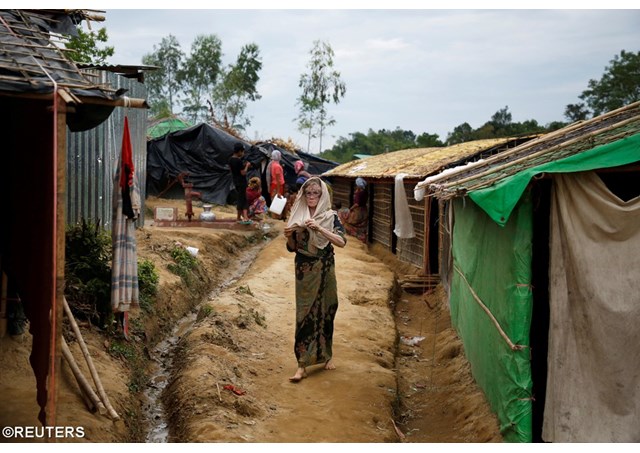
ICMC supports long running crisis of Rohingya refugees

(Vatican Radio) As Pope Francis heads to Myanmar and Bangladesh on his 20th apostolic journey, much of the secular media attention is focused on the continuing humanitarian crisis on the border between the two countries.
Since a crackdown by Myanmar’s military on armed groups in northern Rakhine state last August, hundreds of thousands of refugees have fled across the Naf river into makeshift camps in Bangladesh. UN officials have described the military action as ‘ethnic cleansing’ of the Muslim Rohingya people from the majority Buddhist nation, but the Myanmar government has denied the charges.
Msgr Robert Vitillo is Secretary General of the Geneva-based International Catholic Migration Commission (ICMC). At the height of the crisis, his organisation appealled to donors for funding to support those fleeing the violence. But he told Philippa Hitchen that the ICMC has been working with this minority group for many years before the current crisis began…
Listen to the full interview:
Msgr Vitillo says ICMC has a long history with Rohingya refugees. In Malaysia it has a special programme for thousands of victims of sexual and gender-based violence, helping them with rent and daily living needs, but also providing therapy for those who’ve been abused. ICMC also helps them get jobs and has encouraged the refugees themselves to start a helpline and education programmes as most of the children can’t get into local schools.
He highlights their ‘tragic situation’ as largely stateless people, making it hard for them to have any permanent resettlement possibilities. He insists their plight has developed because of “religious intolerance and we need to call it for that”, bringing more attention to religious minorities being persecuted in many parts of the world and asking people to open doors to these people.
While there are differing versions of the cause of the conflict, Msgr Vitillo says it’s vital “to look at needs of people right now”. The refugees, he says, need more than just the humanitarian assistance that's being offered in Bangladesh and Thailand. We must look for more durable solutions, he says, and the opening up of more resettlement opportunities, but that’s hard as countries continue closing their doors.
If we believe in human dignity, he concludes, we must keep people at the centre of political interests and make a change in the ways we treat refugees and migrants.
| All the contents on this site are copyrighted ©. |


